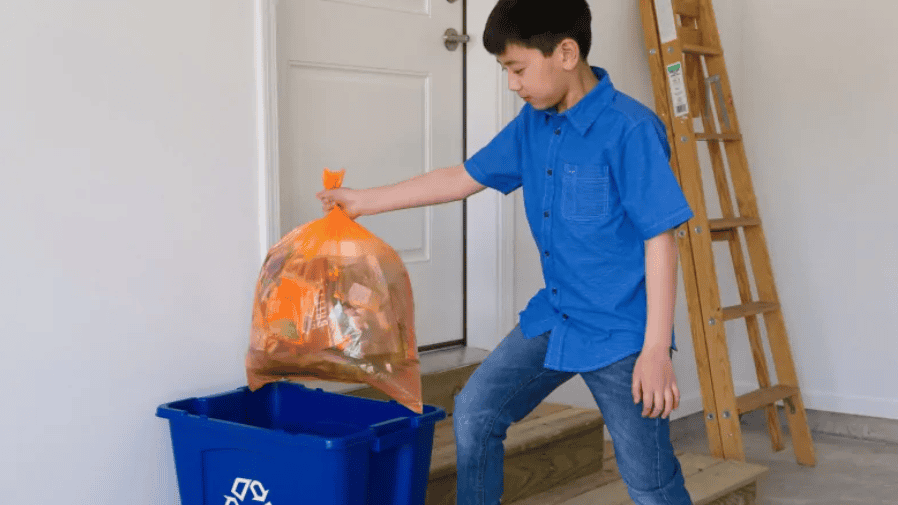
Environmental Defense says turning single-use plastic into fuel isn’t sustainable
The eco-charity Environmental Defense has condemned one aspect of London’s new orange bag program targetting single-use plastics, saying converting plastic into a fuel source is not a sustainable solution.
The City of London launched the creation of the “Hefty Energy Bag” pilot program earlier this week, where 13,000 London households in nine neighbourhoods are being encouraged to use orange bags to collect a laundry list of single-use, hard-to-recycle plastics for reuse, ranging from candy wrappers to milk bags, even foam packing. These are all items that were once out of reach of the city’s blue box program.
The aim of the Energy Bag program is to transform the collected materials into durable plastic items, such as plastic furniture or composite lumber for use in outdoor decks.
The program is also looking at using the collected materials to be reused as a fuel source, either to fire the kilns of cement plants or to be recycled into a diesel fuel alternative.

The practice is already underway in Toronto suburbs, where a Whitby company announced it can convert five tonnes of single-use plastic waste into about 4,000 litres of diesel fuel.
But Vito Buonsante, Environment Defense’s plastics program manager said the process isn’t exactly green.
“When we use plastic as fuel, it is less polluting than coal, but as some would say that’s a pretty low bar to meet.”
As a fuel source, coal releases a toxic cocktail of materials, including more greenhouse gases per unit of electricity produce than any other source.
Buonsante said plastic might be a better option, but it’s far from perfect.
“Using it as a fuel is not a sustainable solution,” he said, noting London should instead look to reduce the use of single-use plastics by creating incentives.
Except, London city officials say that’s exactly what they’re doing.
Jay Stanford, the director of solid waste for the City of London said that when officials in London took the idea of the Hefty Energy Bag program from the U.S. they built upon it.
“The big difference from the US programs coming into Canada, is that we put together this logistics team that has all different opinions, in the hopes that the next generation of thinking will produce some solutions.”
When the 13,000 London families in the pilot program leave their orange bags at the curb, or drop them off at an Enviro Depot, they will get opened.
When they do, it will be with public officials and university researchers and the plastic industry itself in the same room.
Stanford said it forces the biggest source of plastic pollution to take a serious look at itself in the mirror.

“When we look into the bag, we find everything,” he said. “With industry looking at itself, they’re going to say ‘can we streamline some of these materials to make them even more compatible with each other?’ That is why having industry in this program with us, not just as a funder, but right there in science with us.”
The idea is to find potential alternatives to the plastic wrap on candy bars, foam meat containers or the plastic bag for frozen peas that usually end up in landfills.
“We’re about taking the plastic out of the landfill because they have no value there, and taking them out of the ditch because, who wants them there either?”
Stanford also points out that turning plastic into fuel through a process called pyrolysis — using heat to bring about decomposition — can actually prevent coal from being used in industries such as cement production, which often uses it as a fuel source.
“You’re actually replacing the use of virgin materials in many cases,” he said. “You may actually replace coal and you may actually, for the lack of a better term, have a greener produced cement.”
Stanford said the city doesn’t have all the answers yet because the researchers looking into how to reuse hard-to-recycle plastics have only just begun.
It’s why the program is only a pilot project and not citywide, the material is still being tested for different ways to be reused.
Stanford said the city wants to make sure the orange bag isn’t just a one-trick pony and that’s why he welcomes criticism from organizations like Environmental Defense.
“That’s how you learn,” he said, noting the city is just looking to make the world a better place.
“We’re not siding with anyone. We’re not promoting one technology over another. We’re promoting solutions.”


